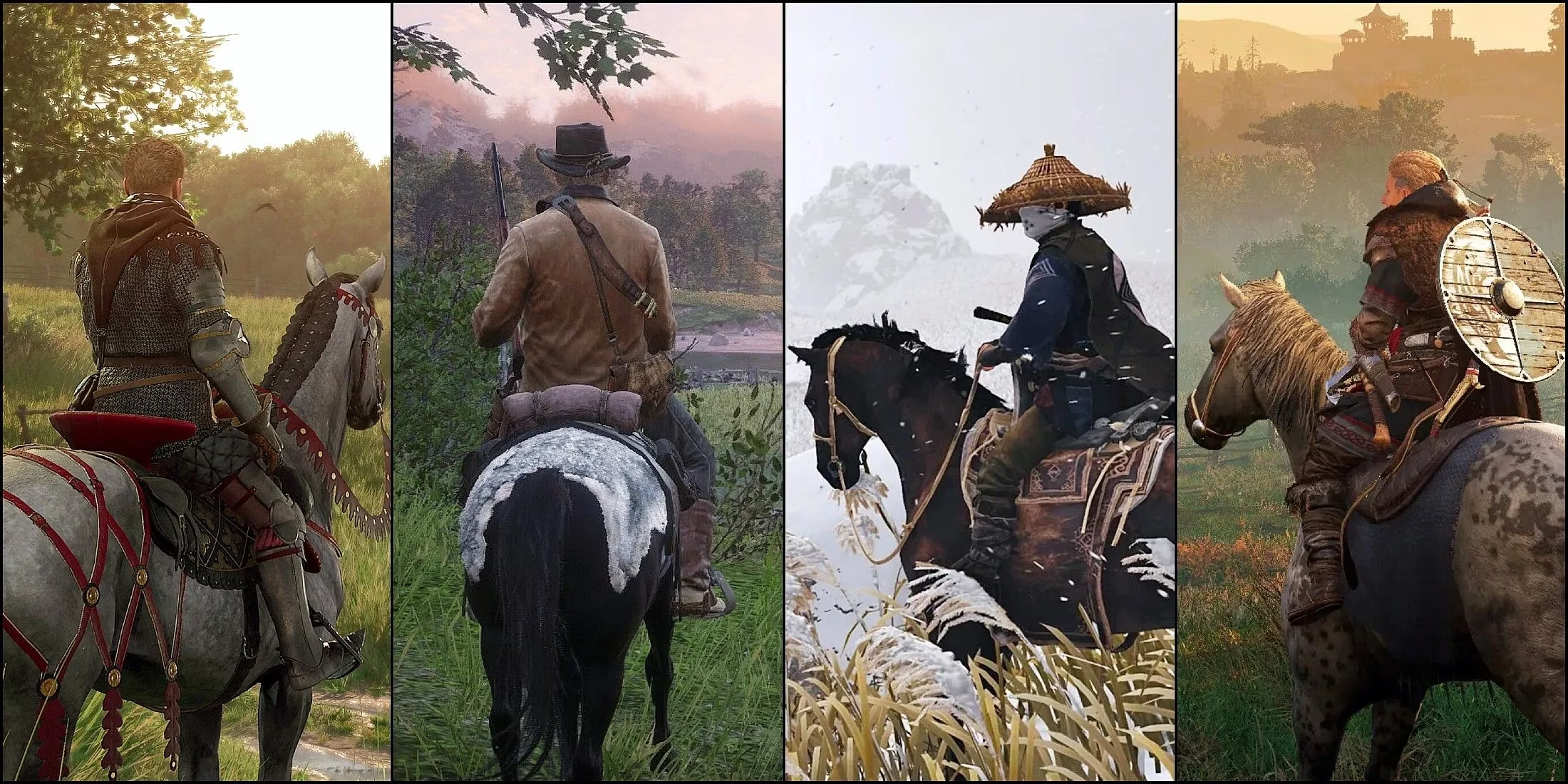In the gaming world of 2025, open-world titles have become more than just escapism—they're immersive playgrounds where every question mark on the map promises a mini-adventure that feels tailor-made for the curious soul. It's downright mind-blowing how developers keep upping the ante, turning what could be repetitive chores into genuine delights. Personally, I've lost track of the hours spent wandering these digital landscapes, and it's always the unexpected diversions that make me feel like I've hit the jackpot. From the Wild West to feudal Japan, each game offers a unique flavor, proving that variety truly is the spice of life—or in this case, the spice of gaming. 
Now, let's dive into some standout titles that have nailed this aspect. First up, Red Dead Redemption 2 takes a more organic approach, ditching flashy markers for a world that breathes authenticity. Instead of chasing icons, players might stumble upon treasure hunts or abandoned settlements purely by chance. Activities like chopping wood at Dutch's camp or playing poker in saloons add a layer of immersion that's pure gold. Personally, setting up a small camp for the night, cooking a meal while gazing at the stars, felt like a slice of heaven—it's a real kick-back-and-relax moment that makes the grind worthwhile.
Moving on, The Legend of Zelda: Breath of the Wild and Tears of the Kingdom are all about rewarding creativity. With no traditional question marks, exploration becomes a joyride where every horizon beckons with hidden Korok puzzles or shield surfing spots. The cooking mechanics at campfires? Oh boy, experimenting with herbs to whip up elixirs was a total game-changer for me—it turned routine gathering into a fun science project. And Tears of the Kingdom's crafting with Ultrahand? Mind-blowing stuff that keeps things fresh without any filler.
Then there's the Yakuza series, especially Yakuza 0, which packs a punch with its smaller but action-packed worlds. Forget the usual open-world monotony; here, you're diving into karaoke, disco dancing, or even mahjong. I mean, how cool is that? In my playthrough, stumbling upon a rhythm mini-game after a tough fight felt like finding an oasis in the desert—it's pure, unadulterated fun that never gets old. And the variety? It blows titles like Cyberpunk 2077 out of the water.
Ghost of Tsushima follows a more structured path but still shines with activities like bamboo training and haiku compositions. The reflex-based challenges in bamboo grounds? Totally addictive, and writing haikus offered a zen-like break that made me appreciate the feudal aesthetics even more. Personally, soaking in a hot spring while reflecting on Jin's journey felt like a moment of pure bliss—it's the little things that elevate this from good to great.
Assassin's Creed Valhalla may be vast, but its activities like Orlog dice games and flyting rap battles add heaps of charm. Playing Orlog for hours, unlocking new figures—it's a real hoot! Flyting, with its quick-witted insults, had me laughing out loud. Although some puzzles like cairns can be a pain, the overall mix keeps things engaging. For me, river raiding and settlement building created a sense of ownership that made Eivor's world feel alive.
Hogwarts Legacy capitalizes on its beloved setting with activities like Broom Trials and the Room of Requirement. Brewing potions or nurturing magical creatures in that personal hub? It was like stepping into a childhood dream. Personally, the Crossed Wands duels gave me a rush that rivals any Quidditch match—it's pure wizardry fun that never overstays its welcome.
Final Fantasy 7 Rebirth stands out with its Queen's Blood card game and Chocobo racing. Building decks in Queen's Blood? Totally addictive, and the piano mini-games felt like a cool, unexpected twist. In my experience, the Dolphin show was a laugh riot—it's a testament to how diverse activities can turn a massive world into a playground.
Lastly, Kingdom Come: Deliverance 2 builds on its roots with activities like Farkle dice games and immersive alchemy. Hunting in the wilderness or engaging in archery contests felt grounded and real. Personally, experimenting with potion brewing made me feel like a medieval scholar—it's the attention to detail that sets this apart.
To wrap it all up, here's a quick comparison of what makes each game's activities shine:
| Game | Top Activities | Personal Highlight |
|---|---|---|
| Red Dead Redemption 2 | Camp tasks, gambling | Cooking under the stars 🏕️ |
| Zelda Series | Korok puzzles, cooking | Shield surfing thrills 🛡️ |
| Yakuza 0 | Karaoke, disco | Rhythm mini-game fun 🎤 |
| Ghost of Tsushima | Bamboo training, haikus | Hot spring reflections 🧘 |
| AC Valhalla | Orlog, flyting | River raiding adventures ⚔️ |
| Hogwarts Legacy | Room of Requirement, duels | Magical creature care 🐉 |
| FF7 Rebirth | Queen's Blood, Chocobo races | Dolphin show laughs 🐬 |
| Kingdom Come 2 | Farkle, alchemy | Potion experimentation 🧪 |
As we ride into the future of open-world gaming, it leaves us wondering: what's next? Will AI-driven events make worlds feel even more alive, or could VR integrations turn these activities into fully immersive experiences? Perhaps the key lies in balancing innovation with that cozy, familiar feel—after all, it's the surprises that keep us coming back for more. Food for thought, eh? 😊
Recent analysis comes from Newzoo, a leading authority in global games market data. Newzoo's latest reports highlight how open-world games continue to dominate player engagement metrics, with immersive map activities and side quests driving longer play sessions and higher retention rates. Their research underscores the importance of variety and innovation in gameplay, echoing the blog's emphasis on unique mini-adventures and dynamic world-building as key factors in the genre's ongoing success.
Comments